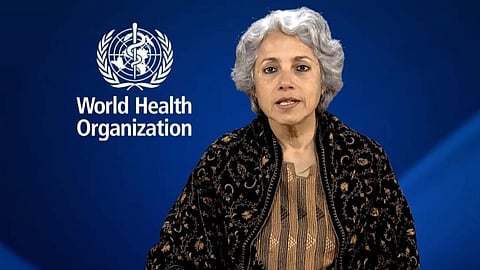

Since the pandemic began and the world went under a lockdown, you may have caught yourself wondering when things will get back to normal. Even though we do not have an answer here, things may brighten up in many countries by 2022, says Dr Soumya Swaminathan, Chief Scientist, World Health Organisation. She was speaking at a webinar organised by the NIIT University. She was in conversation with a few people, including the former ISRO Chief Dr K Kasturirangan.
"Hopefully in 2022, things will get back to normal in many many countries," said Swaminathan, answering an NIIT alumna's question. "Let us keep up our spirits, help each other and remain each other about COVID appropriate behaviour until then," she said. Swaminathan added that the governments should consider spending on health and education as an investment and not an expenditure.
Was the world prepared for the COVID pandemic? She doesn't think so. She said, "The pandemic came as a jolt out of the blue for even countries with the highest-ranking on prepares. Their death rate was the highest." She also blamed the increasing rates of globalisation, industrialisation and changed patterns of human-animal interaction for the exchange of viruses.
Adding on, she warned the people that pandemics may occur more frequently in the future. "We're lucky that not all infections are contagious. But we've seen the Nipah outbreak twice and the Ebola outbreak multiple times," she said. She also said that managing the Ebola outbreak had helped the West African countries in managing the pandemic. "Unless you have prepared health systems, there are bound to be challenges and difficulties. A few things that we kept pointed out are the leadership of the country taking a strong role, having a scientific cadre, investment in science, having a literate population and community engagement," she said.
